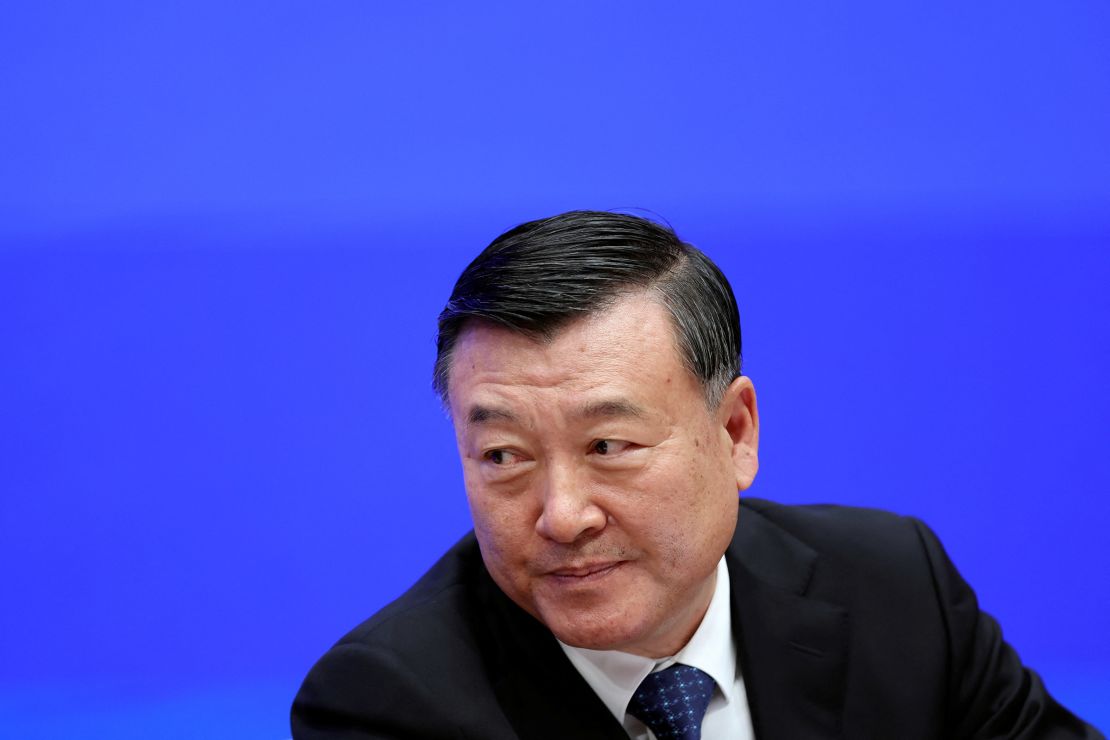Editor’s Note: Editor’s Note: Sign up for CNN’s Meanwhile in China newsletter which explores what you need to know about the country’s rise and how it impacts the world.
Hong Kong
CNN
—
Chinese property shares tanked on Thursday, after measures announced by officials to bolster the flagging real estate market were deemed by investors and economists to be too piecemeal.
After dismal economic data over the summer prompted concern that China may miss its 5% target growth rate, leader Xi Jinping finally decided to go ahead with a much-needed stimulus package, mostly focused on monetary measures, in the last week of September.
Since then, economists have been expecting an additional stimulus package worth up to 10 trillion yuan ($1.4 trillion) to restore bullishness in the world’s second-largest economy. Thursday’s press conference by the Housing Ministry didn’t deliver on those hopes.
“(The) housing supports announced today remain incremental in nature,” Larry Hu, chief China economist at Macquarie, told CNN. “They can help ease the financial distress for developers but may not be enough to stabilize the housing market.”
Investors agreed, sending shares in China’s benchmark CSI300 real estate index down 5%, reversing days of gains. The Shanghai Composite index last traded flat while the Hang Seng index in Hong Kong was half a percent higher, giving up bigger gains from earlier in the day.
During the press conference, the Ministry of Housing and Urban-Rural Development vowed to nearly double bank lending to designated property projects to four trillion yuan ($561 billion) by the end of 2024.
In January, China unveiled a “whitelist” of construction projects, which allowed banks to provide them with loans to help get them to the finish line and into the hands of buyers.
“(We’re) full of confidence in the recovery of real estate market, and we will focus on implementation in the future,” said Housing Minister Ni Hong.

Xiao Yuanqi, deputy director of the Financial Supervision Administration, added at the event that as of October 16, the approved loans for the “whitelist” real estate projects had already reached 2.23 trillion yuan ($313 billion).
Widespread concern
The ailing property sector is widely believed to lie at the root of China’s numerous economic woes. The sector once accounted for as much as 30% of economic activity. Currently, it makes up about a quarter of the Chinese economy and 70% of household wealth.
In September, central bank governor Pan Gongsheng sought to address widespread concern about stalling growth by announcing cuts to one of its key lending rates, the seven-day reverse repo rate, from 1.7% to 1.5%. It also cut the reserve requirement ratio for banks by half a percentage point, which would free up about 1 trillion yuan ($142 billion) for new lending.
He additionally revealed cuts to existing mortgages and lowered the minimum mortgage downpayment from 25% to 15% for second-time homebuyers. The real estate market began to cool in 2019 and fell into a deep trough about two years later, after a government-led clampdown on developers’ borrowing.
The resulting crisis has resulted in a precipitous fall in real estate prices and loss of confidence among consumers. Individuals and companies have been trying to preserve their wealth by selling assets and cutting consumption, as well as investment, which has dealt a blow to economic growth.



